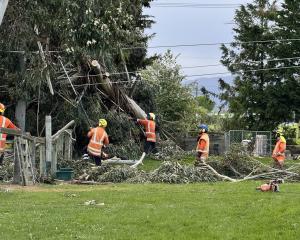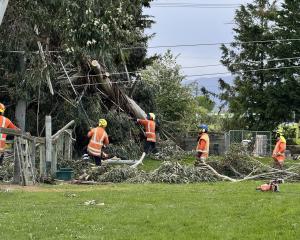''It's very disappointing; very upsetting,'' ecosanctuary general manager Chris Baillie said.
The ecosanctuary went on high alert on Thursday afternoon after stoat prints were found outside the ecosanctuary's fence, and the Department of Conservation decided to evacuate the 12 kiwi chicks on Monday, West Coast and Canterbury area manager Jo Macpherson said.
Ecosanctuary conservation manager Elton Smith said Doc deliberated over the ''risks'' of evacuating the chicks before making the call.
Once the decision was made to evacuate, a team of six Doc and ecosanctuary staff members and one volunteer was assembled to find and capture the chicks.
The mission took all day - about an hour per chick - Ms Baillie said.
All the kiwi were recovered safely, and taken to islands in Lakes Manapouri and Te Anau.
Yesterday, a trained dog had isolated the stoat to the upper part of the ecosanctuary.
''We're hoping that we're getting close to catching it,'' Ms Baillie said.
''Everyone's doing what they can ... we can't think about anything else.''
Ecosanctuary staff were looking at different options to ''fine tune'' the fence so no other predators could enter.
Staff were concerned about the safety of other native animals that could be preyed upon by the stoat, but could not be evacuated.
Among those were the first wild-hatched tuatara in about 500 years, which are believed to have been born at the beginning of this year on ecosanctuary grounds.
Ecosanctuary staff had not yet found proof that the stoat had killed any animals, but that did not mean it had not happened, Ms Baillie said.
''You wouldn't always know ... unless [the evidence] was on the paths, or something like that.''
Even once the stoat was caught, the evacuated kiwi chicks would not be brought back to the ecosanctuary, she said, because moving was just too stressful for the birds.
The first of the kiwi chicks had arrived at the ecosanctuary in March, where they were supposed to be raised until they were big enough to fend for themselves against predators like stoats.
In light of the stoat invasion, the chicks had to be sent away ahead of schedule, Ms Baillie said.
Still, she hoped a new cohort of kiwi chicks would arrive in October, as planned.carla.green@odt.co.nz












